Vacation and Business Tourism in Ghana: Labadi Beach Hotel
Mr. Landry gives his assessment of the economic development of Ghana, mentioning some of the country’s strengths and weaknesses. He also presents Labadi Beach Hotel, Ghana’s premier hotel, resort and business address, renowned for its unique spirit of Ghanaian hospitality.
Interview with Adrian Landry, General Manager of Labadi Beach Hotel
As General Manager, what is your main role?
I certainly consider Labadi Beach to be the top hotel in Ghana, not only in terms of accommodations, including room size and the appointment of the rooms, but we’ve been very careful during our refurbishments to pay homage to Ghanaian tradition, culture and customs.
I have been in Ghana for the last seven years, but have worked in Tanzania, Namibia and South Africa. My role has primarily been to open new hotels and to rebrand or to redevelop existing hotels in the aforementioned countries.
You have a huge project here and once you finish it you may not stay in Ghana?
Yes, I do developments and new projects in particular. It depends on what comes up over the next few years. I am well-experienced within the African continent but one should never be so arrogant as to believe one knows and understands everything about this very special continent.
Let’s talk about Ghana. What is your assessment of the economic development of Ghana? What are its strengths and weaknesses? What is your vision for the future of economic development in Ghana?
The economic development of Ghana has certainly been consistent during the time that I have been in the country. I don’t have the precise facts and figures on hand, but it’s important to note that Ghana has had amongst the highest growth rates of any country in the world. A large amount of that may have come about due to discovery of oil and gas. When the rest of the world felt the dire implications of the banking crisis in 2010, which primarily started in Europe and then was felt in the U.S. and subsequently every other country in the world being so inter-connected, Ghana was spared that due to the oil and gas coming online during this time period. So while the rest of the world fell off the proverbial cliff, Ghana avoided that. Whether it’s good fortune or planned, it’s all counted and it has served Ghana very well.
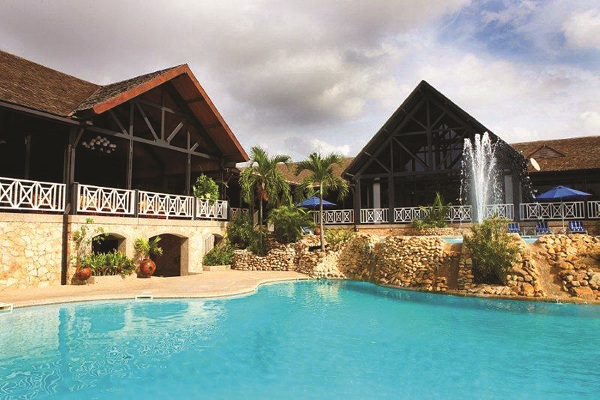
Ghana is also, in the geopolitical sense, a bastion of peace and security, not only on the continent, but certainly on the sub-continent. As we’ve seen certain developments come to pass, and I refer of course to Mali and the various changes happening within the region, Ghana will certainly remain and perhaps become even more of an important bastion or springboard for those looking to do business from Ghana into other areas in the sub-region.
Let’s look at the hotel sector in Ghana. We have been talking to different people here about the economy. I would like to know more about the hotel industry and tourism trends.
There certainly is an upward trend in business tourism. Once again, I’m not going to give facts and figures because those are subject to interpretation as to who is a business tourist and who is not, but what I see coming through the premier hotel in Ghana are people who are looking to do business. They might have an appointment with the Minister or with various government departments, but their tourism tends to be going out to other areas within Ghana to explore other opportunities that are in allied fields and peripheral businesses to theirs. Without question, you have people that might come for an initial stay of ten days or a week, or possibly even less, and then end up staying longer. There are also those who repeat their business in due course because I think they are pleasantly surprised with the opportunities they find. That for me is business tourism. Some people believe it is people who come on business and then do a little bit of tourism and there is obviously that component too. In terms of my definition of business tourism, it is people looking to do business within allied fields and this is certainly taking place in Ghana.
Do you consider Labadi Beach to be one of the top hotels in Ghana?
I certainly consider Labadi Beach to be the top hotel in Ghana, not only in terms of accommodations, including room size and the appointment of the rooms, but we’ve been very careful during our refurbishments to pay homage to Ghanaian tradition, culture and customs. In this way, our rooms are not traditional cookie-cutter type hotel rooms that one might find in other parts of the world. I’m sure in your travels you have been to a property where you can close the curtains and you could either be in Melbourne, Istanbul, Vienna or London. You wouldn’t be able to tell the difference.
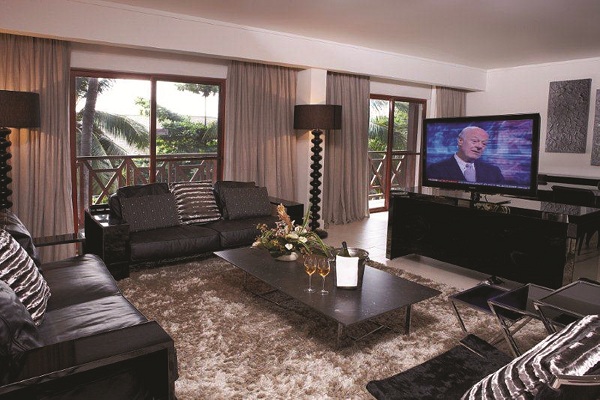
However with our rooms we made sure they reflect African traditions and customs, not only by way of displaying the artwork on the wall but also placing symbols which are the West African alphabet. This ancient alphabet has been woven into our fabrics, into our throws on the bottom of the bed and the pillowcases. Each and every room has its unique individually-carved chief’s stool which is a symbol of power and authority. The furniture on the property is manufactured in Italy and installed here in Ghana by Ghanaian craftsmen. All the timber is from sustainable forests of the United States. We have gone to great lengths to ensure that it shows Ghana at its best.
Being one of the hotels, regarding the development of business tourism you were mentioning, how do you adapt to that? I was in this hotel ten years ago. It was in the same place, not the same hotel. How did you adapt to this growing number of tourists and the fact that Ghana is growing?
As you mentioned, Ghana is definitely growing. The demands placed on hotels certainly have grown over the years. One of the ways we have addressed that is by adding an additional sixty rooms. Those sixty rooms are now effectively two years old. In terms of square meterage and design, they do supersede the original rooms which have also been entirely remodeled. So we have added more rooms to cope with the increased demand and we are busy constructing a new conference center which will accommodate 700 people. We are building a new spa for health and beauty treatments. We are also increasing the size of our gym by over 150% and putting in brand new equipment and an exercise pool.
But the conference center is the telling factor in the sense that the amount of conferences, training and business coming to Ghana certainly justifies an additional facility. We’ve experienced that in terms of the bookings that we’ve regretted from companies that have been looking to book with us and we simply haven’t had the conference space. The conference space will drive the occupancy.
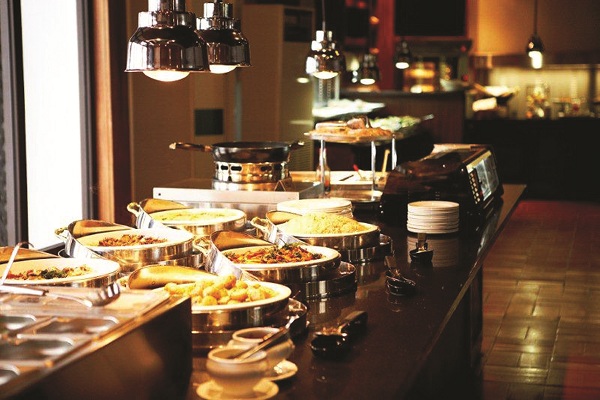
There are additional rooms to be added in Accra. Over the last three years, we’ve seen two major brands enter the market and add a considerable amount of room stock. We do have two other top-end international brands opening within the next 18 months to two years that will put additional room stock on the market. The investors from these companies certainly see the opportunity and the potential. They have belief in Ghana; they are putting their money where their mouth is and it bodes well. It is certainly going to affect us as a property but that’s when we up the ante and we look to improve not only standards but service, too. We have done it in the past. We have learned to have the best service in Ghana and that comes by ongoing on job training and certainly there is more room stock being added but we see that as an advantage in that it is going to add a critical mass to the amount of rooms in Ghana which will allow Ghana and especially Accra to host bigger international conferences and events.
Why don’t you open a new hotel?
As a company we are certainly looking to acquire or to build new properties but definitely within the West African context. We are looking specifically at Ghana right now for new builds but we are also looking further into West Africa. There’s great opportunity in areas that have been volatile in the past. As they come to fruition, we are seeing tremendous activity in places like Sierra Leone and we believe that the rest of the sub-region has similar opportunities.
What are your major challenges?
There are few things that really worry me. We have a great team onboard with quite an exceptional length of service on average. Having done this now for a number of years, we aren’t saying we know everything – we would never be that arrogant – but we have our line of supply well sorted out. At the moment there is an element of importation from other countries, especially items like fruits, perishables, meat, etc. Those sectors of the economy in Ghana haven’t quite grown to the extent that we would like them to yet.
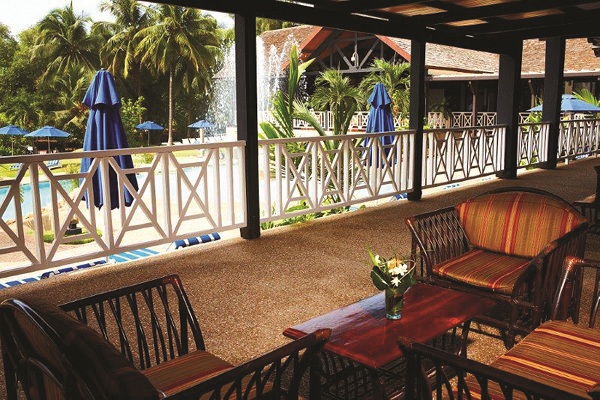
There are definitely opportunities, whether it be in dairy, animal husbandry, vegetables or fruits. Sadly we do have to import items to supply customers. So yes, we do bring in beef from South Africa and pork products from Kenya. A lot of our fruit either comes from Belgium, Lebanon or Egypt. We try to support and assist local producers as best we can in terms of quality and consistency, and we’ve seen improvements in those things. There are opportunities for investors there as well.
What about infrastructure problems? Is the infrastructure running behind development?
There is definitely pressure on the infrastructure. Successive governments have endeavored to make a positive impact and I think they certainly have. But the number of cars you see on the road is a very clear indicator of the growth and prosperity in Ghana. There’s no question of that. It’s the old adage of when you go into a new city, if you want to get an understanding of the development, start counting the number of cranes on various high-rise buildings. I think cars certainly are something that can be counted as well if you want an understanding of how the wealth is being spread or how it’s trickling down through society.
In fairness and to answer your second question in a holistic sense, we are seeing the international trend of urbanization applying here. People are coming to where the jobs are, where the growth is and where the activity is. So there’s an increasing pressure on infrastructure. Like many cities on our continent and certainly in the world, people are moving into the cities looking for those opportunities and putting pressure on the existing infrastructure. To try and keep up with that is an onerous task for any government anywhere in the world. You only need to look at some of the cities in Latin America and others on our continent to see the pressures that are being exerted.
What is your vision for the development of your business? Where do you see your hotel in five or ten years’ time?
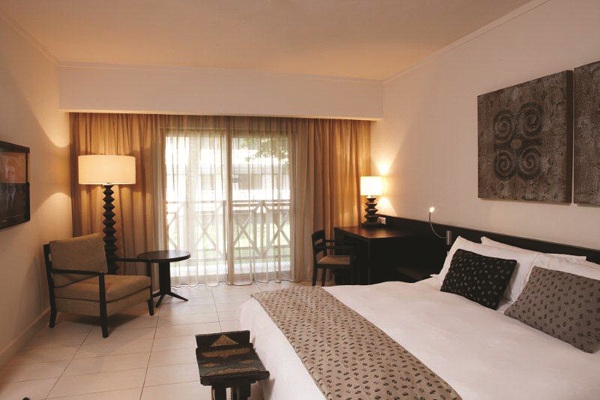
I think there will be cycles in terms of development as there are in any country and in any business. There certainly are peaks and troughs in terms of the acceleration of the business. However, I would like to believe that Labadi will certainly go from strength to strength by virtue of its location. We’re not right in the center of town; we’re out in an environment which offers large gardens. We’re on the seaside and have our own private beach. Those are key factors that help to differentiate Labadi from other properties. I would like to believe that Labadi will remain the number one property. There might be other brands that come to town with different names and many of those are great brand names, but in terms of being a niche and exclusive type of hotel, and in terms of standards and service, Labadi will remain number one.
What is your message for international investors?
My message would be that you certainly cannot leave Ghana off your prospectus. I think it is imperative that one looks at Ghana; I think Ghana has certain inherent geographical advantages and geopolitical advantages. The fact that it’s a growing economy cannot be discounted in any way. Proximity to markets is also important. Africa is a huge continent for growth. Whether it be natural resources, agriculture or provision of services, Africa is going to be the continent that drives the world economy to en even greater extent than before.